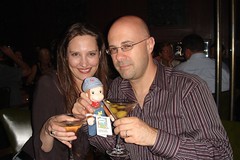Living, as we do, in a time of rapid change. Of transformation and uncertainty. It can be difficult to see what our long term future holds.
You can see it in the words we use to describe our lives. These words are flat. Uninspired. Transactional. We have entire governments swept to power on the back of the laziest of phrases and political slogans masquerading as thought-through policy agendas.
But we have not arrived in this desolate landscape randomly. It is the end-result of a thousand micro choices that consolidate our misery.
It is as if we have abdicated our personal responsibility for imagination in favour of a strange wariness of close fears. Today, in Australia, it was announced that we now hold the record for economic growth without a recession. We have experienced 26 years without interruption to our prosperity. Twenty six years without a downturn.
We have a generation of people who have known only growth. There have been few labour strikes. Precious few public protests. This perceived prosperity has dulled our senses to our own personal agency. The storytellers who ignite our hearts and passions no longer tread the public boards of our most important debates – they pop up in our Facebook news feeds, talking at TED or singing on “Insert Your Country Here’s” Got Talent.
But this can change. The story is the trick. And if we do want to reclaim our sense of the future, then there’s much to learn from the careful crafting that goes into the stories of digital media’s emerging heroes. Just watch this clip from America’s Got Talent. Think about the one clear message. See how you are drawn in to this story. Understand how and why you respond to what you see and what you hear. And see how the foreground, backstory and framing create the conditions for you to take the story into your heart.
Then think about what you can do to change your sense of what is possible. You only need try.
